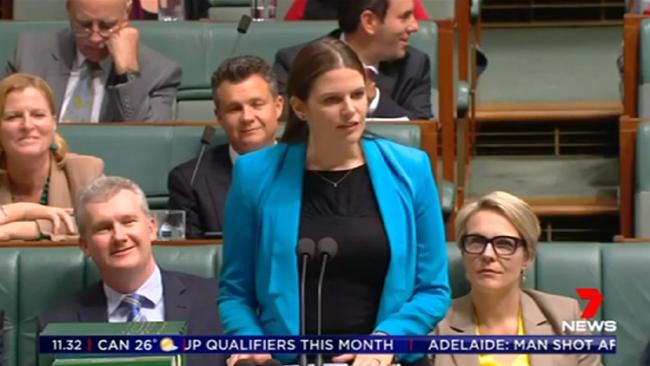The decision by Kate Ellis, the 39 year old federal Labor MP for Adelaide, to announce her retirement at the next election to be with her young son came as a shock. Her explanation was convincing.
“He’ll need to be in Adelaide [after starting school]. And I will need to be in Canberra if I’m the member for Adelaide, and that’s a really big problem for me and for our family.”
Ellis saw the potential wider implications of her decision.
“I would hate for my legacy to be sending a message that you can’t be a young woman and go into Federal Parliament because I’ve made this choice.”
Unfortunately that may well be one of her legacies. Several Fairfax writers were dismayed enough to take up this cri de coeur. Stephanie Peatling made a challenging call:
“It’s not people who should have to change to make their lives fit politics as we know it. It’s politics as we know it that should change.”
Annabel Crabb directly challenged institutions:
“Ordinary workplaces around the country are obliged to change in order to survive and keep good employees-Why not Parliament?”
The lesson from Kate Ellis should not be why did this woman leave, but how could we make people like her stay?
The immediate context was gender balance. If many women with school-age children (pre-schoolers are easier to accommodate in parliamentary child-care) thought life as a federal parliamentarian was impossible then this would be a major blow to the dream of 50:50 representation. The goal would not easily be reached if childless and older women predominated among female parliamentarians.
The lesson from Kate Ellis should not be why did this woman leave, but how could we make people like her stay?
The wider context is all types of diversity in parliament. Behind much popular disaffection with politics today is the belief that politicians are a separate breed, not like the rest of the community. They have become career, professional politicians detached from day-to-day concerns.
Changing the life of a parliamentarian to ensure greater work-life balance has proceeded at a snail’s pace on matters such as a childcare centre in the parliamentary building, and the right of MPs to breast-feed a child in the parliamentary chamber.
Radical change will be even harder. There is one such change which would not help Ellis, but would possibly advantage women. That is the idea of limiting the terms of parliamentarians to three or four terms so that there is more turnover of MPs and discouragement of professional politicians. The 13 years served by Ellis would become the norm for a parliamentary career and having a family could occur before or after a parliamentary term.
Crabb suggested an even more radical idea which would not change parliamentarians but the very institution of parliament. Her ideal is the virtual parliament which would enable MPs like Ellis to take part in chamber work from her home or local office. Technological advances make this possible and the chamber would be conducted by Skype.
Crabb’s ideal is the virtual parliament which would enable MPs like Ellis to take part in chamber work from her home or local office
There is yet another possibility. Academics in Britain, including Dr Rosie Campbell of Birkbeck University of London and Professor Sarah Childs of the University of Bristol, advance the case for job-sharing by MPs. This involves transferring an idea with a long history in the public and private sectors into politics. Prospective MPs would stand for election on a shared basis, dividing the pay and the responsibilities.
Campbell and Childs see this idea as a reaction to “the professionalization of politics and the narrowing of the political class.”. The value of job-sharing, they say, is also that it makes the symbolic point that “being a representative is a job not just for the professional or unencumbered politician but a job open to all”. The encumbrances might be job, family or disability.
The idea of a part-time MP goes back to the nineteenth century when male MPs, predominantly from privileged backgrounds, combined parliamentary work with another profession or occupation. It is turning back the clock of professionalization to retain some of the best of the amateur MP who continues to live and work in their local community.
Many will see all these ideas as pie in the sky: “If it isn’t broken, don’t fix it”. But for many voters the system is broken, and many MPs yearn for greater flexibility of life-style and a lessening of work-load. The problems are lesser in some state parliaments, but rural MPs in all parliaments face the same travel demands and absence from home and family as federal MPs like Ellis.
Both a virtual parliament and job-sharing MPs have problems as they do in other spheres. Politicians get together formally and informally in parliament for a lot more than just voting, and job-sharing the job of a minister is a lot harder than being an MP.
Nevertheless there is much to be said for shaking up ways of doing things which have become dysfunctional. Ellis’ best legacy would be a re-examination of all aspects of the parliamentary status quo.




